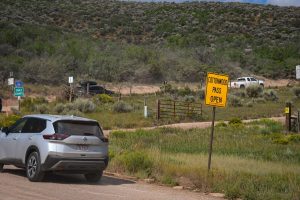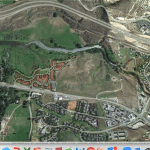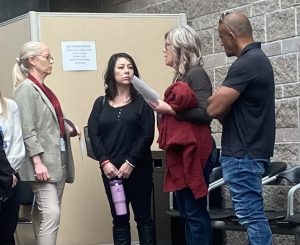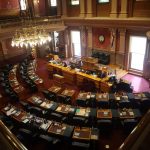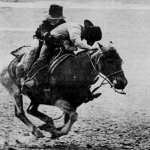Lawmakers push to beef up Colorado’s oversight of rail safety
Measure comes in the face of several high-profile derailment disasters and a controversial oil-by-rail plan along the Colorado River
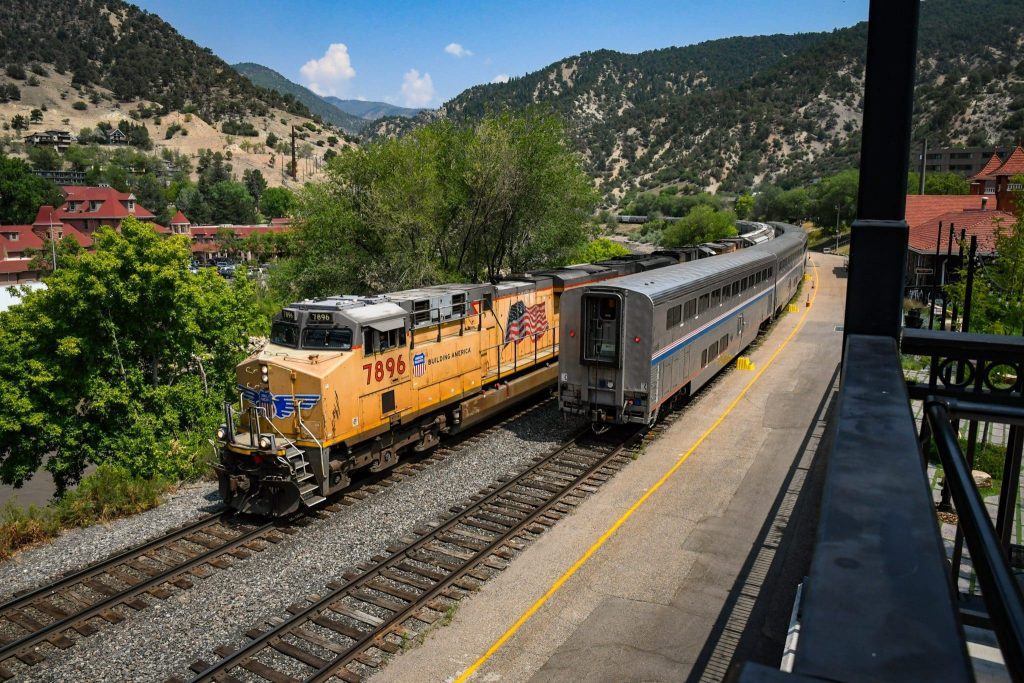
Glenwood Springs Post Independent file photo
Colorado lawmakers are forging ahead on a plan to bolster state oversight of railroad safety in the wake of recent derailment disasters and a highly scrutinized proposal to transport crude oil on a railway along the Colorado River.
Senate Bill 162 would levy a fee on commercial and passenger rail operators to hire state safety inspectors. It would also create new reporting requirements when train-related issues occur, ensure rail workers can coordinate with first responders, and collect more data to identify gaps in maintenance and emergency responses.
While rail regulations are typically overseen at the federal level, more states have begun to assume oversight and enforcement responsibilities.
“This is enabling us to do what is allowed by federal law,” said Sen. Lisa Cutter, D-Littleton, a lead sponsor of SB 126.
The measure builds on legislation passed last year that created the Office of Rail Safety within the state’s Public Utilities Commission. The office was tasked with completing an initial study on rail regulations. Lawmakers hope this year’s bill will provide the office with more resources to begin its enforcement work in earnest.

Support Local Journalism
By imposing a fee on rail companies, lawmakers want to use the revenue to hire six new state inspectors within the Office of Rail Safety who would conduct at least two inspections per week, in addition to bringing on a data analyst. The bill does not specify what the fee amount would be, but directs the Public Utilities Commission to determine a fee amount for rail companies, with the total annual amount capped at $2.9 million.
Fees would only be for Class I railroads — representing the largest commercial rail carriers — and passenger lines.
According to a bill analysis by the nonpartisan Legislative Council Staff, three rail companies would fall under those categories in Colorado: Union Pacific, Amtrak, and Burlington Northern Santa Fe Railway, which oversee a combined 3,000 miles of track throughout the state.
Other aspects of the bill allow train crew members to communicate with first responders during emergencies after notifying the railroad dispatch. The bill also shields railroad employees and crew members from civil liability and damages when acting in good faith during an emergency.
Join the 17,000 readers who get the news from us daily.
Sign up for daily or weekly newsletters at VailDaily.com/newsletter
The measure comes following several high-profile commercial train derailments in recent years, including a 2023 incident in southern Colorado that killed a truck driver and another in East Palestine, Ohio, where hazardous materials spilled and caught fire, causing exposure to toxins.
There have been over 12,400 train derailments in the U.S. between 2013 and 2023, according to an Associated Press analysis of accident reports submitted by railroads.
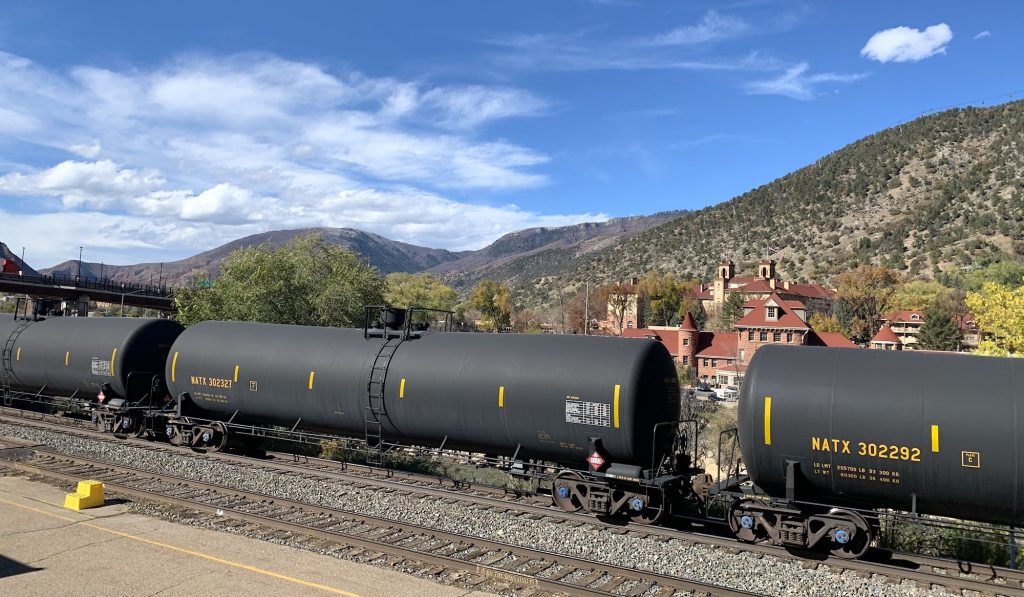
Those events have only intensified concerns from government officials and environmental advocates over a proposal to haul up to 350,000 barrels of waxy crude oil daily along a stretch of the Colorado River.
The Uinta Basin Railway project seeks to build 88 miles of new rail line to connect remote oil basins in Utah with Union Pacific’s national rail network, with the route passing through Glenwood Canyon and the central mountains. The proposal is currently being reviewed by the U.S. Supreme Court after it faced legal challenges led by Eagle County that resulted in it being halted by a lower appellate court.
Cutter said SB 162 establishes important guardrails, “so that if that waxy crude oil is being shipped throughout our winding rail tracks throughout the mountains next to the watershed and through our forests, that there are more safety precautions in place.”
Rep. Elizabeth Velasco, D-Glenwood Springs, whose district includes areas where the Uinta Basin rail line has been proposed, said emergency preparedness is critical.
“Especially in our rural communities, where we are already impacted by a changing climate and other emergencies like wildfires and road closures,” said Velasco, who is also a lead sponsor of SB 162.
Outside of commercial endeavors, Colorado could soon see more rail activity in the form of passenger lines.
A plan to expand passenger services from Denver and Winter Park to include Steamboat Springs and Craig is chugging along after the state clinched a deal in December with Union Pacific, while a proposal for increased passenger lines up and down the Front Range is also in the works.
Yet lawmakers say Colorado is severely under-resourced when it comes to rail safety, with only a handful of federal inspectors covering the state in addition to other regions.
“It’s in our interests and the interests of public safety to make sure the state has that ability to respond when there is an emergency and the ability to regulate railways,” Velasco said.

The rail industry has been critical of lawmakers’ proposal.
“We don’t believe the additional levels of regulation are needed,” said Union Pacific spokesperson Nathan Anderson, during a Tuesday bill hearing at the Capitol, “and this Colorado legislation does not equate to increased safety results.”
Anderson said the rail industry already has “100% rationale to keep safety at the forefront of every interaction” and raised concerns that a new fee would be in addition to what the company already pays as part of the state’s fixed utility fund.
While bill sponsors say more than 30 states currently have rail safety oversight programs similar to the one Colorado is proposing, he said not all rely on fees on rail companies. He also said the bill’s reporting provisions go far beyond what is required by the Federal Railroad Administration.
“This could result in challenges that cost money, cost time and result in potentially undesirable litigation,” he said.
Bill sponsors said rail companies would be exempt from paying into the fixed utility fund if subject to the proposed fee under SB 162.
Sponsors have also agreed to several amendments to the bill, including pushing out the fee’s implementation timeline from 2026 to 2027 and reducing the overall cap on annual fee revenue from $4.8 million to $2.9 million.
SB 162 passed the Senate on April 23 in a party-line vote of 23-12, with Democrats in favor and Republicans opposed. It is currently working its way through the House.

